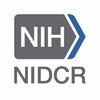Etanercept Therapy for Sjogren's Syndrome
Sjogren's Syndrome

About this trial
This is an interventional treatment trial for Sjogren's Syndrome focused on measuring Clinical Trial, Autoimmune, Disease Activity, Cytokine, Saliva, Xerostomia, Salivary Glands, Sjogren's Syndrome
Eligibility Criteria
INCLUSION CRITERIA Documented primary or secondary SS. Absence of confounding health problems. No contraindications to etanercept therapy. SS patients cannot have sarcoidosis, HIV infection, or lymphoma. Patients must have one of the following abnormal autoimmune serologies associated with SS (i.e. positive ANA, RF, and anti-SS-A, or anti-SS-B). Patients may use pilocarpine provided that they hold their dose on visit days when saliva is collected. Patients taking DMARD's, such as hydroxychloroquine, must be on a stable dose. Participants may take NSAIDs or acetaminophen. EXCLUSION CRITERIA Patients must not have physical or mental conditions that may make them unable to comply. Subjects may continue their other long-term medications with the exception of tricyclic antidepressants and anti-cholinergics, which may affect salivary gland function. Patients cannot take experimental drugs during the duration of the protocol. Children will be excluded due to additional risks that may occur with etanercept.
Sites / Locations
- National Institute of Dental And Craniofacial Research (NIDCR)
Outcomes
Primary Outcome Measures
Secondary Outcome Measures
Full Information
1. Study Identification
2. Study Status
3. Sponsor/Collaborators
4. Oversight
5. Study Description
6. Conditions and Keywords
7. Study Design
8. Arms, Groups, and Interventions
10. Eligibility
12. IPD Sharing Statement
Learn more about this trial
